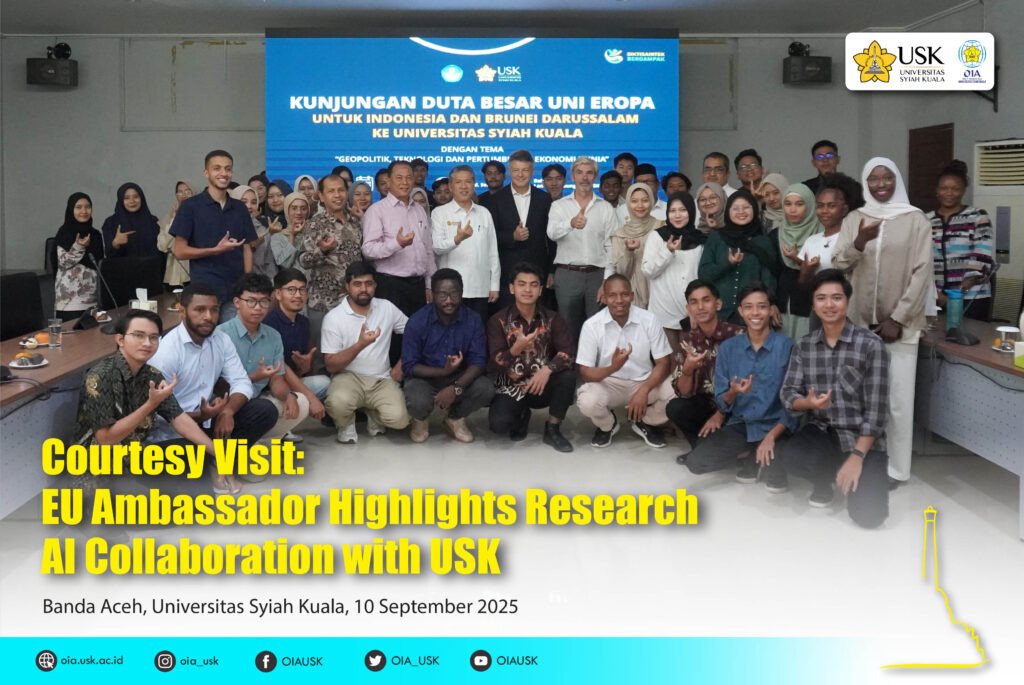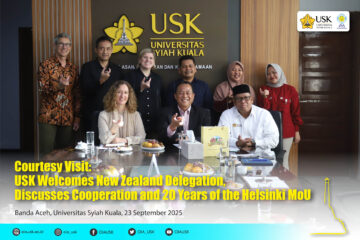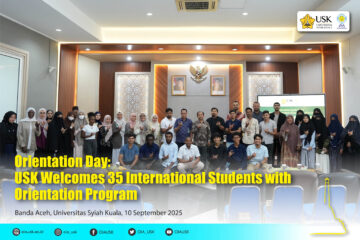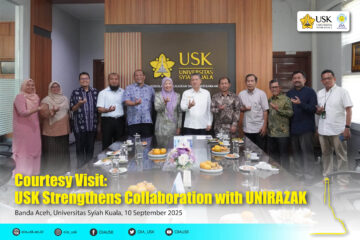EU Ambassador Highlights Research and AI Collaboration with USK
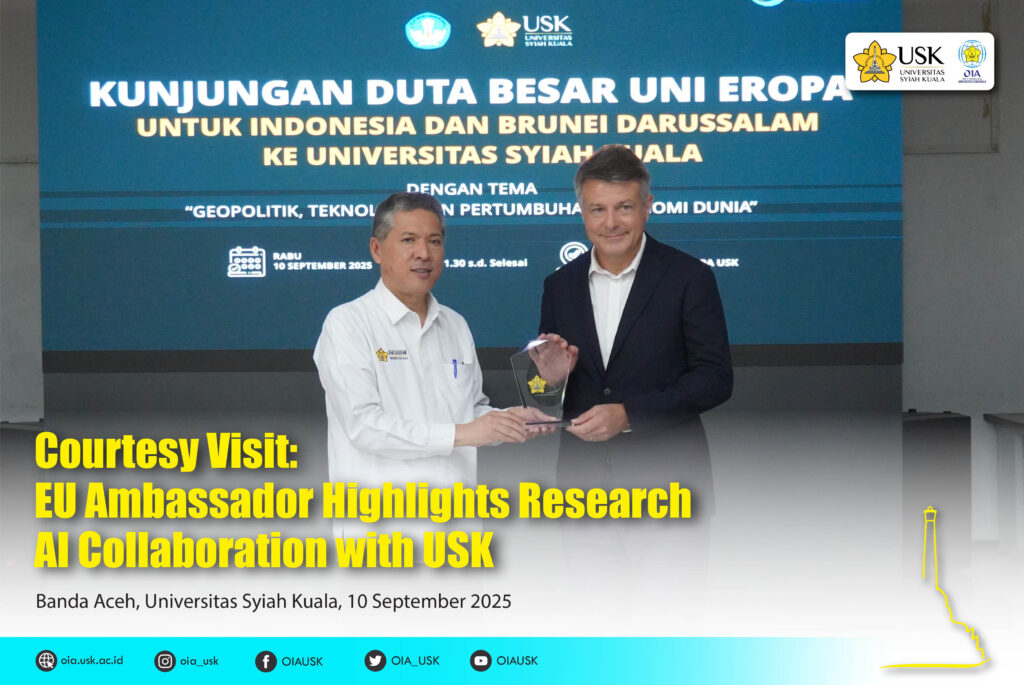
Universitas Syiah Kuala (USK) welcomed a courtesy visit from the European Union (EU) Ambassador to Indonesia and Brunei Darussalam, H.E. Mr. Denis Chaibi, on Wednesday, 10 September 2025.
The meeting, held at USK’s Senate Hall, aimed to strengthen diplomatic ties while exploring opportunities for cooperation in strategic fields. Attended by both international and local USK students, the event became a lively forum for the exchange of ideas.
In his remarks, USK Rector Prof. Dr. Ir. Marwan reaffirmed the university’s vision to become a World-Class University.
“We have established international classes across several faculties and master’s programs in Disaster Science and Conflict Resolution, which strongly align with the EU’s commitments,” he said.
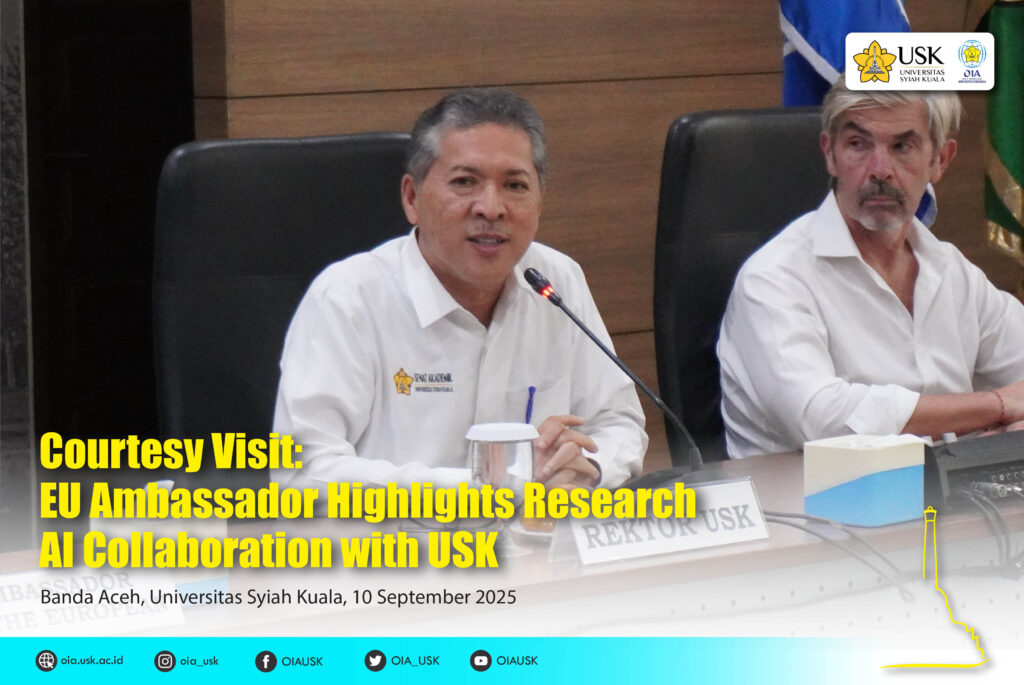
“We deeply appreciate the support provided by the EU, especially in the aftermath of the tsunami and during Aceh’s peace process,” he added.
During his public lecture on Geopolitics, Technology, and Global Economic Growth, Ambassador Chaibi outlined key areas for future collaboration. He pointed to strong prospects for trade between Indonesia and the EU, particularly in strategic commodities such as palm oil and nickel—resources not available in Europe. According to him, such partnerships would generate mutual benefits and foster economic growth for both sides.
The Ambassador also stressed the importance of climate cooperation, recognizing Indonesia’s vital role as a global partner thanks to its vast forests and biodiversity.
Technology and artificial intelligence (AI) were central to his message. H.E. Mr. Denis Chaibi invited USK students to take part in research initiatives and exchange programs, especially in technology.
“Young people today are already highly skilled with technology,” he said, citing AI-powered online training platforms widely used in Indonesia as an example.
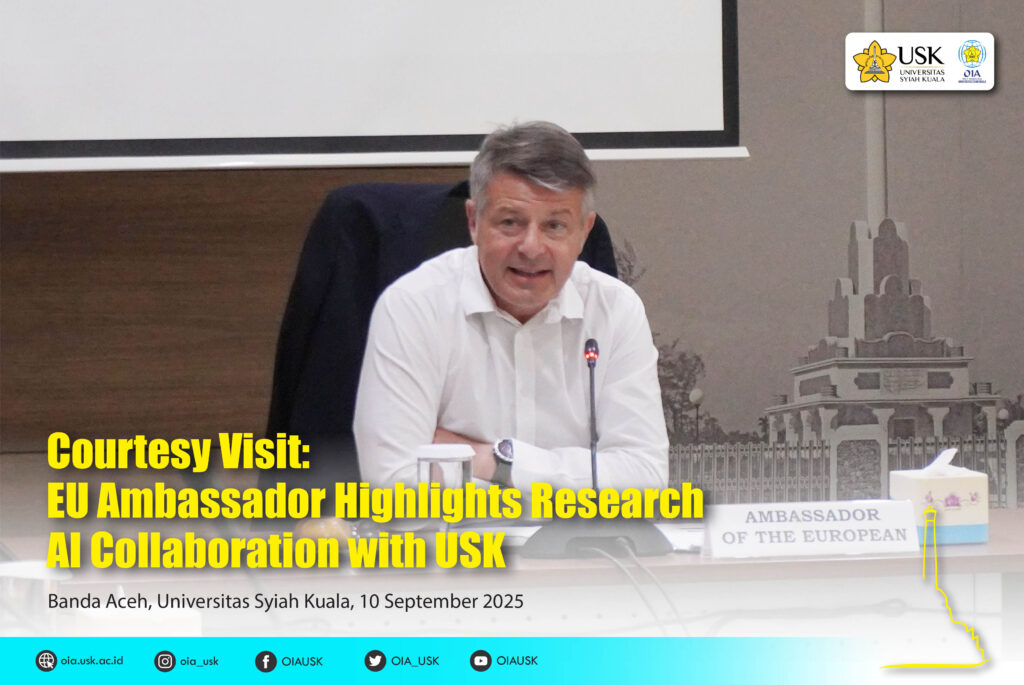
Concluding his address, Ambassador H.E. Mr. Denis Chaibi underscored the transformative role of youth.
“Young generations have a crucial role in changing the world through real action, not just academic theory. Academic life should not only focus on producing papers but also on creating tangible impact,” he emphasized.
